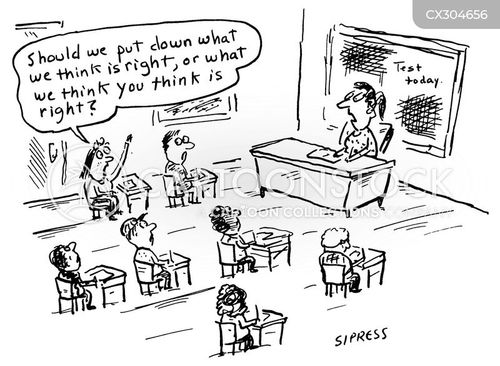Direct Democracy is not some wild idea born out of the imagination of heathens. It makes logical and just sense and it gets results, despite most controllers and governments trying to shunt it to the back of playbook.
Direct democracy, where citizens directly participate in decision-making, has become a growing trend worldwide. While often viewed as a utopian ideal, its practical implementation varies significantly across different countries. This article examines the successes and challenges of direct democracy through case studies of Switzerland, Taiwan, Mexico, and Uruguay, highlighting the diverse ways this system operates in practice.
It’s already practised in a few countries to some degree. Switzerland, Mexico, Uruguay, Latvia and Lithuania. USA (in locations), Taiwan. Lets take a closer look…

SWITZERLAND- “Direct Democracy invented Switzerland” through a public vote in 1848 to establish the Swiss Confederation, over time that has only increased in power. Since 1971, Swiss men and women over 18 years of age have been invited to make binding decisions more than 450 times at the national level. More importantly, in contrast to many other political communities around the world, in Switzerland elected legislative or executive leaders are not allowed to put an issue to a public vote: this can only be done by the citizens themselves, either through the collection of signatures or in accordance with a legal requirement, such as proposed changes to the constitution or for important financial expenditures.
In 2014, Swiss citizens voted on an initiative to limit immigration, a controversial issue that sparked heated debate. The initiative, though ultimately passed, highlighted the potential for direct democracy to reflect public sentiment, even if it leads to politically challenging outcomes. This case illustrates the power of direct democracy to hold the government accountable and reflect the will of the people, even on complex and divisive issues.
Source https://www.swissinfo.ch/eng/politics/how-four-countries-practise-direct-democracy-today/48308922

UNITED STATES- The US, the often self proclaimed country based on “Democracy”, is clearly no such thing and never has been since it’s a battle of power, showmanship and money, a two horse race no-one believes in and nothing to do with any form of listening to the people. However there are two states that attempt a version of it, South Dakota and Oregon, however there’s still no legalised connection to Federal Government. Money, power and corruption controls show no sign of abating in the US and directly affect the chances of any democracy in that nation. Other states including Oregon, California, Colorado are using a form of Direct Democracy to manage budgets.
Source : https://www.swissinfo.ch/eng/politics/how-four-countries-practise-direct-democracy-today/48308922 and https://www.britannica.com/topic/direct-democracy/Countries-and-developmental-background
URUGUAY- Uruguay has been able to find broadly accepted ways forward on 20 issues in 30 years including penal law, voting rights, the independence of the judiciary, and the public pension system. This has contributed to making Uruguay the Latin American country with the highest per capita income, lowest poverty rate and lowest level of inequality. In sum, Uruguay ranks as one of the top 15 democracies worldwide, occupying 13th place in the 2023 Economist Democracy Ranking, well ahead of the US (26), Brazil (47), Colombia (59) and Mexico (86).
Uruguay: A Progressive Approach to Direct Democracy
Uruguay has implemented a unique approach to direct democracy, focusing on participatory budgeting and citizen-led initiatives.
Case Study: The “Participatory Budgeting” Program
Uruguay’s participatory budgeting program allows citizens to directly allocate public funds for local projects, promoting community engagement and empowering local decision-making. This case study demonstrates the potential for direct democracy to empower citizens and enhance local governance.
Source : https://www.swissinfo.ch/eng/politics/how-four-countries-practise-direct-democracy-today/48308922
TAIWAN. Taiwan has emerged from relatively nowhere to have a self proclaimed direct democracy here’s the story on how , highlighted by 2003 law change Referendum Act 2003 however as you will read in that article, it created barriers to democracy as well as the perception it was removing them.
Taiwan: A Rising Star in Direct Democracy
Taiwan has embraced direct democracy in recent years, implementing a system of referendums on various issues, including constitutional amendments, public policy, and even presidential elections.
Case Study: The Same-Sex Marriage Referendum (2018)
The 2018 referendum on same-sex marriage, though ultimately unsuccessful, demonstrated Taiwan’s commitment to allowing citizens to express their views on socially significant issues. The referendum sparked public dialogue and raised awareness, highlighting the potential for direct democracy to promote social progress and inclusivity.
MEXICO. Not really a Direct Democracy either, but showing signs of heading in that direction is Mexico.
Mexico: Direct Democracy in a Federal System
Mexico’s direct democracy system is embedded within its federal structure, allowing for a range of participatory mechanisms at both the national and state levels.
Case Study: The “Yes to the Future” Initiative (2015)
The 2015 initiative, aimed at reforming the country’s energy sector, demonstrated the potential for direct democracy to drive significant policy changes. The initiative, though ultimately defeated, highlighted the ability of citizens to directly influence national policy decisions, even in a complex federal system.
LATVIA
A Baltic Experiment: Exploring Direct Democracy in Latvia
Latvia, a Baltic nation known for its rich history and vibrant culture, has embarked on a unique journey with direct democracy. While not as established as in countries like Switzerland, Latvia’s recent experiment with citizen-led initiatives offers a compelling case study for understanding the potential and challenges of this form of governance in a post-Soviet context.
The Rise of People-Powered Politics
Latvia’s journey towards direct democracy began with the adoption of the “People’s Initiative” law in 2012. This law allows citizens to propose new legislation by collecting a minimum number of signatures. If successful, the proposed law is then debated in parliament, potentially leading to a national referendum.
Case Study: The “No to Mandatory Vaccination” Initiative (2021)
In 2021, a citizen-led initiative opposing mandatory vaccination for COVID-19 gained significant traction, gathering enough signatures to trigger parliamentary debate. While the initiative ultimately failed to pass, it highlighted the growing public interest in direct democracy and the potential for citizens to influence policy on critical public health issues. This case study demonstrates the power of direct democracy to amplify public concerns and bring often-overlooked issues to the forefront of political discourse.
Case Study: The “Support for Local Farmers” Initiative (2019)
Another notable initiative, launched in 2019, aimed to support local farmers by promoting policies that would prioritize local produce in public procurement. This initiative, while not reaching a referendum, sparked a national conversation about food security and the role of agriculture in the Latvian economy. This case study highlights the potential of direct democracy to address local concerns and promote sustainable development.





